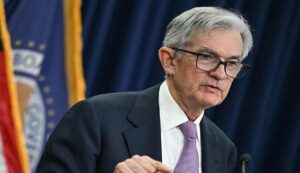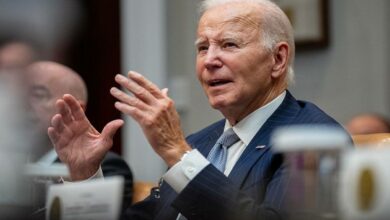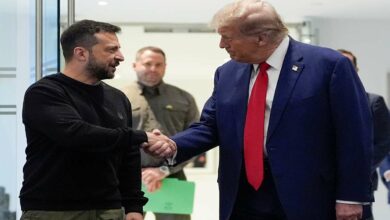The U.S. Fed cuts interest rates by a quarter point
The US Federal Reserve proceeded with a quarter point decrease Thursday, dismissing worries about how Donald Trump‘s election triumph will affect interest rates.
Only a short walk separates the Fed from the White House, where Democratic President Joe Biden will return the keys to Trump in January after the Republican’s election victory.

The Fed stated in a statement that policymakers unanimously decided to lower interest rates by 25 basis points to between 4.50 and 4.75 percent, ignoring the political drama unfolding up the road as anticipated.
Fed Chair Jerome Powell told reporters that “the election will have no effect on our policy decisions in the near term,” pointing out that it was still unclear what President-elect Trump’s true economic objective would be.
“We don’t guess, we don’t speculate, and we don’t assume,” he said.
Powell said that dismissing any of the Fed’s seven governors was “not permitted under the law” and that he would not step down if the president-elect requested him to do so.
Prior to Tuesday’s vote, consumers had expressed anxiety about the cost of living, so the US central bank’s rate decision should assist lower the prices of mortgages and other borrowing.
However, borrowing costs will also be influenced by how financial markets see the long-term effects of a Trump victory and where the Fed must set interest rates to maintain current inflation.
“The economy appears to be quite resilient.”
According to experts, one of the main reasons Trump won was the post-pandemic spike in US inflation, which caused consumer prices to increase by more than 20%.
The Fed began its easing cycle with a greater half-point rate drop in September, and Thursday’s decision builds on that. The Fed also planned to lower rates further this year.
Since then, economic growth has been strong, and the Fed’s preferred inflation indicator has decreased to 2.1 percent in September.
Despite a significant hiring slowdown last month that was mostly caused by unfavorable weather and a labor strike, the job market has remained robust overall.
Ahead of Election Day, Jim Bullard, the longtime former president of the St. Louis Fed, told AFP, “In general, the US economy looks fairly resilient, and the labor market still looks very good.”
Bullard, who is now the dean of Purdue University’s Daniels School of Business, forecasted a 25 basis point decrease this week and another one of comparable magnitude in December.
According to CME Group statistics, futures traders see a chance of around 65 percent that the Fed will reduce by a quarter of a percentage point next month.
On what the Fed will do next month, however, economists are still divided.
‘Broken down’ fiscal discipline
Even if a Trump win seems certain, a lot still hinges on Republicans’ ability to maintain control of the House of Representatives, which they seem to be on course to achieve, giving them a “Red Sweep” of the White House and both chambers of Congress.
“Markets tend to like divided government as a way to control spending and keep deficits down,” said Bullard.
“What’s distressing to an economist like me is that, really, fiscal discipline has broken down for both political parties,” he said.
Trump has said that he would want to replace Powell when his term ends in 2026 and has often accused Powell, whom he first nominated to lead the US central bank, of trying to benefit Democrats.
Additionally, the president-elect has said that he would want “at least” some control over the Fed’s interest rate setting, which goes against the Fed’s present mission to address unemployment and inflation without the involvement of Congress or the White House.




